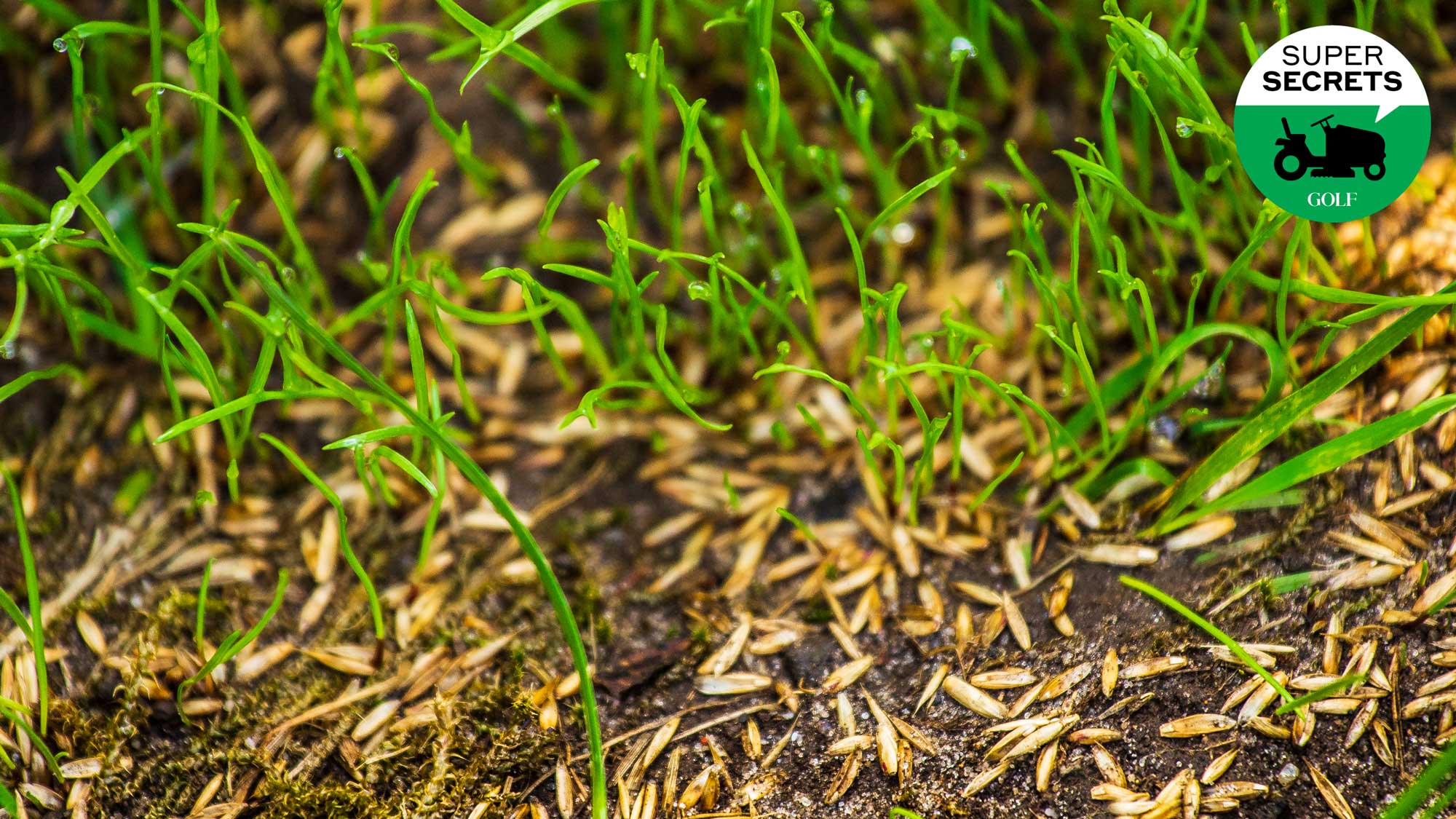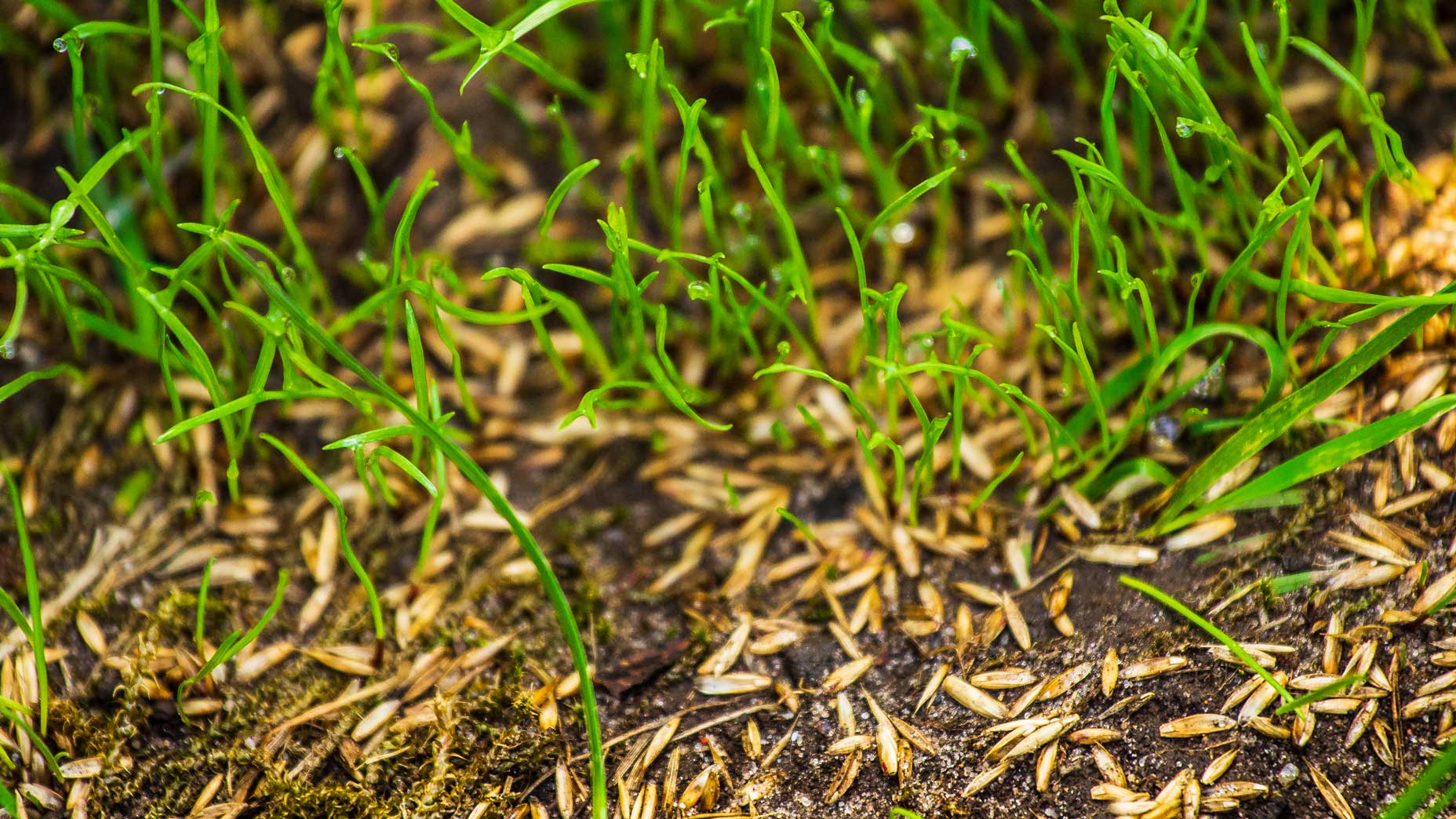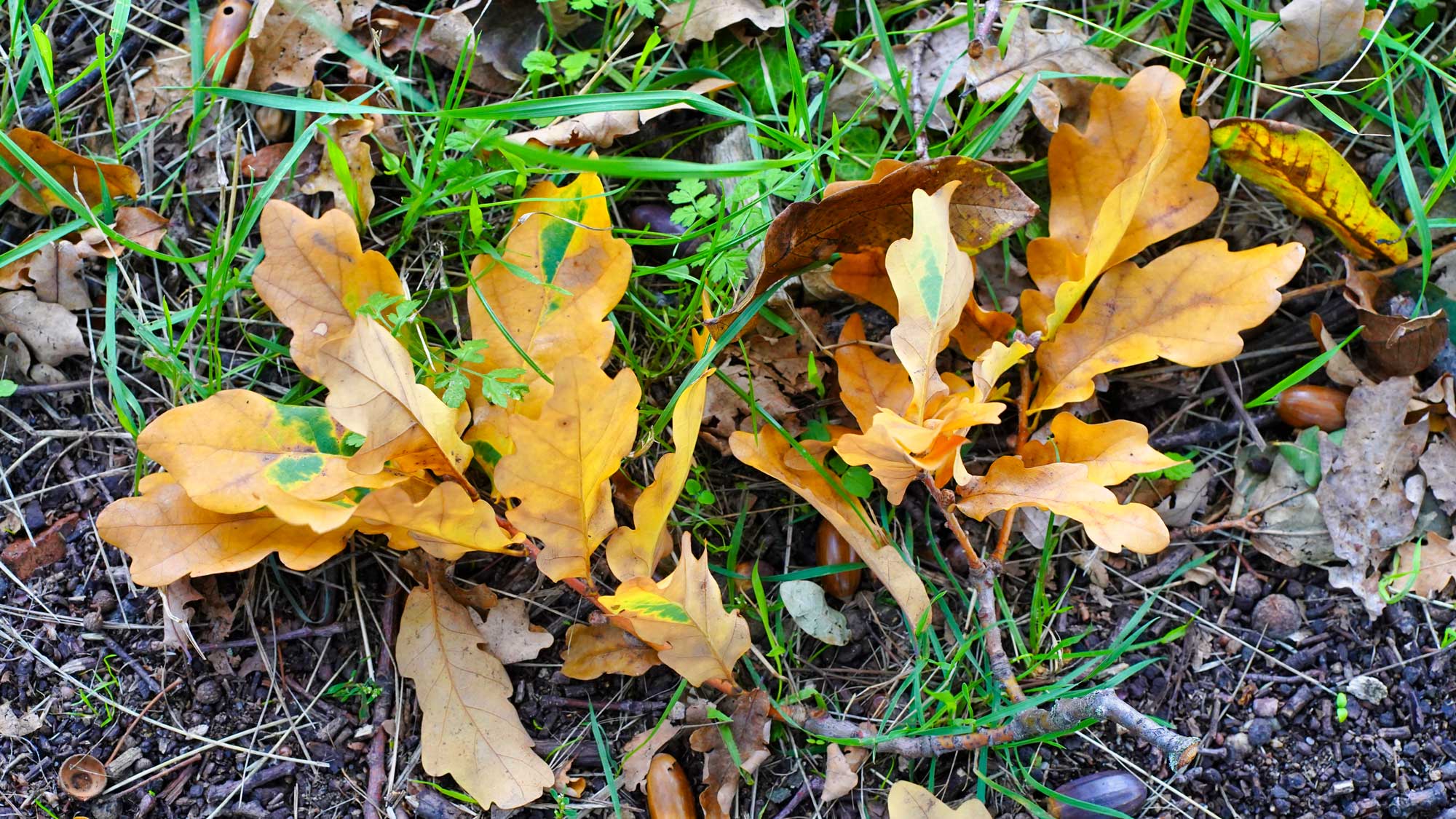
Get your seeds down now! The frost cycle will work to your advantage.
getty images
Winter is coming, and a Game of Thrones-style wall isn’t going to help your yard through the long, cold months ahead. Jeremy Hreben is the superintendent of Indian Spring Country Club, in Marlton, N.J., and a 20-year member of the Golf Course Superintendents Association of America. Here are 5 lawn-prep steps he says you should consider before the frigid temperatures set in.
1. Thorough weeding
All life is competition. The less your grass faces heading into winter, the healthier it will be come spring.
2. Late seeding
In the region where he lives, Hreben says the best time to get seed to germinate is August and September. But that doesn’t mean you can’t apply seed later in the season. That’s what Hreben does around the first frost. Farmers often employ this practice, too. It’s called … wait for it … frost seeding.
Rather than just scattering the seeds, it’s best to get them in good contact with the soil, with help from a slit-seeder (a machine that makes thin cuts in the soil, so that the seeds can settle). From there, the frost cycle will work to your advantage; as the ground freezes and thaws, the seeds will draw down deeper, and then start to germinate before the brunt of winter. Come spring, when soil temperatures warm to around 55 degrees, Hreben says those seeds “will really start to jump.”
Potassium is an important nutrient for grass. It’s also “very mobile in the soil,” Hreben says, meaning it leaches through quickly or the grass gobbles it up fast. A little extra potassium before winter can help build a valuable reserve in the soil.
4. Winterize your irrigation system
That means storing any hoses inside and emptying water from your sprinkler system. That second part isn’t brain surgery, but you’ll need to know where to hook up a compressor and how to use it properly to avoid damaging your pipes. If you don’t feel up to the task, Hreben says, there are plenty of lawn-care companies that will do it for you.
5. Apply fungicide
“Snow Mold” is not the name of Hreben’s favorite punk rock band. It’s a cold-weather fungus. If you’re dead set on preventing it, Hreben suggests a pre-winter application of fungicide. Just be sure to follow the instructions closely, or, Hrebren says, get a certified pro to do the job.











